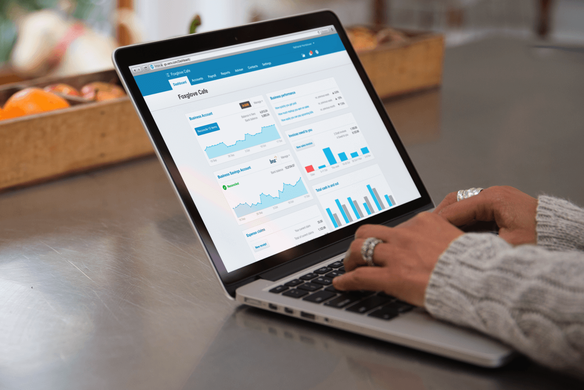Table of contents
The end of the year will be here before you know it. With it comes all the fun and frenzy of the holidays, but, unfortunately, also some work to tidy up your year-end bookkeeping. To make all this less of a pain, we have the experts at Xero here to walk you through what you can start doing now to prep. And if you want to streamline your bookkeeping in 2016, link your Square account to Xero’s accounting tools in Square App Marketplace.
There are a lot of reasons why people start a business. “Because I really love bookkeeping” isn’t one of them. In fact, in a recent TD Bank survey, fully half of business owners said bookkeeping is the day-to-day task they hate the most. But like it or not, bookkeeping plays a critical part in your failure or success. Do it well and your business will benefit — especially at this time of year, as you put your books in order and prepare for tax season. Here are five steps you can take right now to do your bookkeeping better. Keep in mind that this is informational only. For tax advice specific to your business, be sure to check with a professional accountant.
Separate business and personal expenses.
Yes, it may seem easier to manage your business and personal finances in a single account. But it’s not a good idea. It leaves you open to financial and legal risk. It can cause you to mix up personal expenses and business deductions, like putting that family trip to Hawaii down as a business expense. Oops. It can also cost you many hours at tax season (when time is your scarcest resource) as you sort through all your monthly statements to identify those transactions that really are business transactions.
Your books, your tax returns, and your personal sanity will all be much improved once your personal and business finances are separated. If you don’t already have a bank account and credit card dedicated exclusively to your business, you should start them now and run every business expenditure through those accounts.
Add Apps to Square
Bring it all together.
Check out the Square App Marketplace.
Track all your receipts.
The IRS requires you to keep receipts for any business expenses over $75 for three years from the date your return was filed. But you should get in the habit of keeping all receipts, no matter how small. That’s because receipts give you the documentation you need to back up any business purchase in the event of an audit.
If your shoe box is already overflowing with receipts, you have better options. Scan all your receipts and upload them to the cloud. This is a great way to reduce your storage volume (digital and otherwise) and build an archive of easily retrievable receipts. A number of cloud-based services now make storing and organizing receipts simple and cost-effective.
Properly expense large purchases.
Not all expenses are created equal. This is something that many business owners don’t realize. Say, for instance, you visit your local office-supply store and pick up $300 worth of printer cartridges. These can likely be written off as a one-time expense. But say you also pick up a shiny new $300 printer. Is this also a one-time expense? No. Due to the longevity of the printer — you’ll probably be using it over the course of many years — you most likely need to capitalize that purchase as an asset rather than an expense. Just because you spent the same amount of money does not mean you can file your purchases as the same sort of deduction.
Many business owners make the mistake of expensing everything they purchase. However, purchases of equipment that will last more than one year must be capitalized, per IRS rules.
Properly classify employees and contractors.
The misclassification of employees as independent contractors is a serious problem and one that the IRS does not take lightly —especially lately.
The way that an employee is classified dictates the taxes that need to be paid, when they are paid, and who pays them. You should make it part of your hiring process to have a contractual agreement with new employees to clarify their employment status as independent contractor, consultant, or freelancer.
Don’t put off bookkeeping till the last minute.
Don’t put off your bookkeeping until days before you file your tax return. It can crimp your cash flow, because you don’t have a running tally of what’s coming and going. It can cause receipts to fall through the cracks and cost you valuable write-offs.
Bookkeeping is one of those cases where a little goes a long way. Set aside a small chunk of time each week to invoice customers, record all your receipts and payments, and follow up on late payments. It’s better to do a few bookkeeping tasks once a week rather than let the books go and take on a monster at the end of the year.
Bookkeeping is not rocket science. Matt Damon was not rescued from Mars by an elite team of CPAs. But it is at the center of your own business universe. It tells you where you stand at any given moment and indicates what’s working and what isn’t. So do it well and watch your business flourish.
– Iris Yau (Xero)
About Xero
Xero is beautiful online accounting software for small businesses. Sign in any time, anywhere, from any device. You can link your Square account to Xero in Square App Marketplace.
Related Articles
3 New Time-Saving Invoicing Features to Close Your Books Quickly
Tell-Tale Signs You’re Ready to Expand Your Business
Which Receipts Do You Need to Keep as a Small Business Owner
![]()











